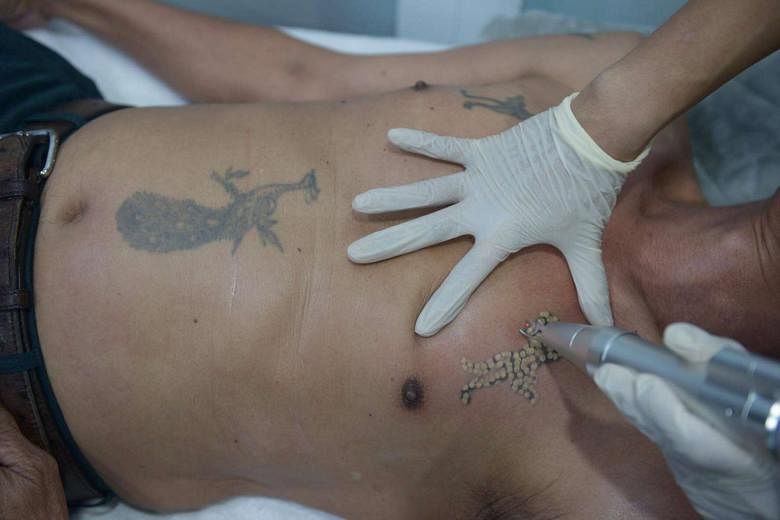They may have already changed their ways, but the drawings inked into their skin draw attention and make it hard for them to start a new life.
Some former offenders, though, are getting help to erase such reminders of their unsavoury past, under a new pro bono tattoo-removal programme. Called The Next Chapter Project, it is led by medical aesthetics supplier Absolute MS, which has roped in five doctors for the project.
Absolute MS managing director Jimmy Lok told The Straits Times: "We have been in the business for eight years, and we have been distributing medical lasers. We wanted to give back to society, and we thought this initiative is a good way to use the devices for a good cause."
Executive project coordinator Deborah Seah, also from Absolute MS, said: "These ex-offenders have turned over a new leaf, but the social prejudice still remains. We want to help uncover the changed person that they already are."
Absolute MS works with welfare groups that help former offenders, such as The Helping Hand and The New Charis Mission, to identify people who need tattoo removal.
Since the project started last month, 15 people have been identified for tattoo removal, including five who are not former offenders but come from disadvantaged backgrounds. The first person to have his tattoo removed went for his first session last Friday (see side story).
Dr Daniel Chang, who performed the tattoo removal, said: "It is meaningful to be able to help them, using what we already know and have learnt." He does about 10 tattoo-removal sessions a month. The removal usually has to be done over several sessions, one to two months apart.
The number of sessions needed depends on factors such as tattoo size and colour. Tattoos in colours like red, green and yellow are harder to remove; likewise, those done many years ago or by professional tattoo artists.
"The removal process is painful, but patients will hardly tell you it is painful," said Dr Chang.
"It is not difficult for them to start, but coming back takes discipline. When I see that they are so focused on getting the tattoos removed and they show the same level of enthusiasm each time, I feel that what I am doing is really helping them."
There are other such programmes for former offenders. A project by the Singapore Anti-Narcotics Association and National Skin Centre offers a subsidy of up to 90 per cent for tattoo removal. The Singapore Prison Service offers the service free for inmates intent on renouncing gangs and their old ways.
Prison Fellowship Singapore executive director Andrew Tay welcomed the latest initiative.
"The Next Chapter Project's objective aligns with our endeavours to give our clients a shot at reintegration into society," he said.


